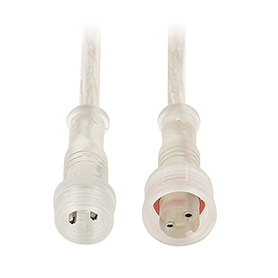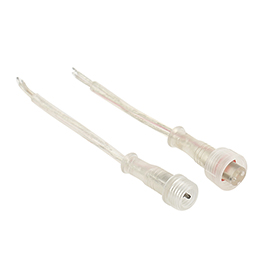News


News

Common Causes of Waterproof Speaker Connector Failures and Maintenance Solutions
Release time:2025-05-15
viewed:333
Waterproof speaker connector are critical components in outdoor audio systems, marine equipment, and industrial applications. Despite their robust design, factors like environmental stress and improper handling can lead to performance degradation. This article explores frequent failure modes and actionable maintenance strategies.

1.1 Corrosion from Moisture Intrusion
Even with IP67/IP68 ratings, prolonged exposure to humidity or saltwater can corrode metal contacts. Chloride ions in seawater accelerate oxidation, increasing electrical resistance.
1.2 Seal Degradation
Silicone or rubber gaskets may harden or crack over time due to UV exposure or temperature cycles, compromising the waterproof barrier.
1.3 Mechanical Stress
Frequent plugging/unplugging or cable tension can deform Waterproof speaker connector housings, misaligning internal components.
1.4 Contaminant Accumulation
Dust, sand, or debris lodged in connector grooves can hinder proper sealing and contact conductivity.

2.1 Regular Inspection Routines
Check for visible corrosion on pins/sockets using a magnifier.
Test seal elasticity by pressing gaskets; replace if brittle.
2.2 Cleaning Protocols
Use isopropyl alcohol and soft brushes to remove contaminants.
Avoid abrasive tools that scratch conductive surfaces.
2.3 Lubrication Practices
Apply dielectric grease to metal contacts and seals to repel moisture and reduce friction during mating.
2.4 Storage Recommendations
Keep unused waterproof speaker connectors in sealed bags with desiccants.
Cap open ends to prevent dust ingress.
For field repairs, temporary fixes include:
Wrapping damaged seals with self-fusing silicone tape.
Using contact cleaners to restore conductivity in corroded connectors.
Preventive maintenance significantly extends the lifespan of Waterproof speaker connector. Combining routine checks, proper cleaning, and environmental protection ensures reliable performance in harsh conditions.